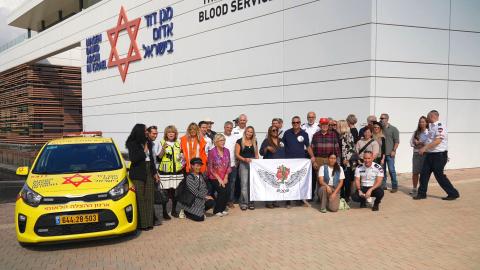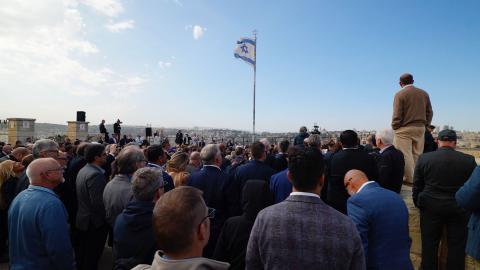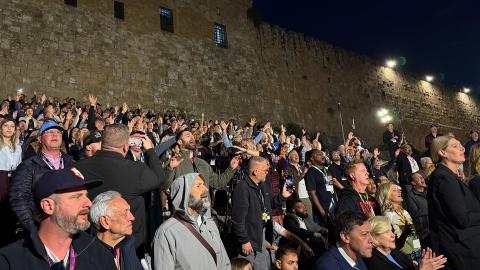What Sinai Attack Means for Israel's Security
JERUSALEM, Israel -- Islamists targeted a tour bus of South Koreans as it neared the Taba border crossing between Egypt and Israel on Sunday. Four people -- the Egyptian bus driver and three South Korean passengers -- were killed, and at least 13 others injured.
An terrorist calling itself Champions of Jerusalem claimed responsibility for the attack, which took place just 50 meters (yards) from the crossing.
"There was an explosion and then came the fire truck and the ambulance, but they couldn't do anything," Saber Al-Sayed Hassan, an eyewitness, recalled.
Members of the terror posted a statement on al Qaeda-affiliated websites, calling Sunday's bombing part of an "economic war" against the army-backed government.
***The Sinai desert, which borders Egypt and Israel, has become more lawless in recent years. What risk does that pose to the Jewish state's security? CBN News Mideast Bureau Chief Chris Mitchell addresses that question and more on CBN Newswatch, Feb. 17.
The busload of 31 pilgrims -- all members of Jincheon Jungang Presbyterian Church out of Seoul -- had visited St. Catherine's Monastery in central Sinai. They were on a 12-day tour to Turkey, Egypt and Israel.
Late Monday evening, church members, some of them sobbing, gathered in front of the church. One family member of a bus victim can be heard saying, "She's dead. She's dead. My sister is dead."
Several on board were taken to nearby hospitals suffering serious injuries. It was the first such attack targeting foreign tourists in the Sinai Peninsula.
Egypt's Muslim Brotherhood released an English-language statement condemning the attack, but tweeted in Arabic that "Zionists" were among the casualties, the Jerusalem Post reported.
South Korea's foreign ministry issued a statement condemning the attack, saying they were "shocked and enraged at the terrorist bombing on the bus."
"We believe that terrorism can never be justified under any circumstances and such inhumane and unethical acts should be weeded out by all means," the statement read.
South Korea's Egyptian Ambassador Kim Young-So said an Egyptian suicide bomber blew the bus up.
"An Egyptian man in his 20s suddenly boarded the bus and detonated the bomb," Young-So told Seoul-based MBN television. "It appears to be a suicide bombing by a terrorist."
In an emergency meeting, South Korean officials vowed to help the Egyptian government find out who carried out the attack.
"The Egyptian foreign minister has acknowledged the seriousness of this incident, and has expressed his intent to pour all efforts into handling this situation," Lee Jung-kwan, with the South Korean Foreign Ministry, said.
Meanwhile, Egyptian Tourism Minister Hisham Zaazou said he hoped Sunday's attack would be "an isolated incident," promising that "all the rest of the country is safe and secure and what happened can happen anywhere in the world."
Egypt's interim government is trying to emerge from the instability that's pervaded the country since the overthrow of Hosni Mubarak in February 2011. The government hopes to revive the nation's once-flourishing tourism industry, while dealing with Islamist violence in Cairo and other cities. It's also addressed burgeoning terrorism in the Sinai Peninsula, which grew exponentially during Muslim Brotherhood President Mohammed Morsi's short tenure.
Since Morsi's ouster, the Brotherhood has continued demanding his reinstatement in anti-government protests.
Presidential elections are planned for mid-April, with acting Defense Minister Gen. Fattah Abdel El-Sisi the leading contender. The majority of Egyptians opposed the Brotherhood's takeover of the government.



